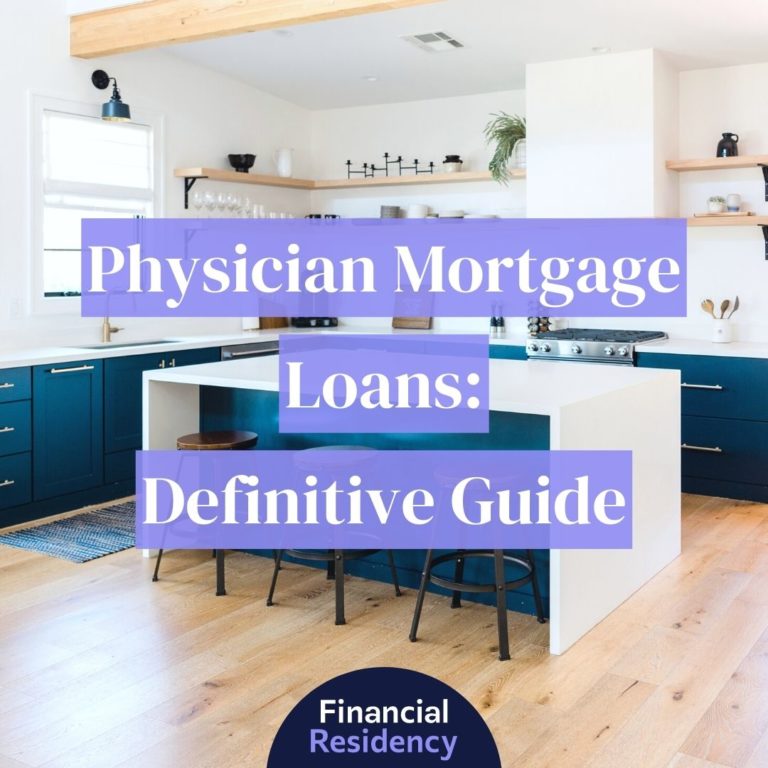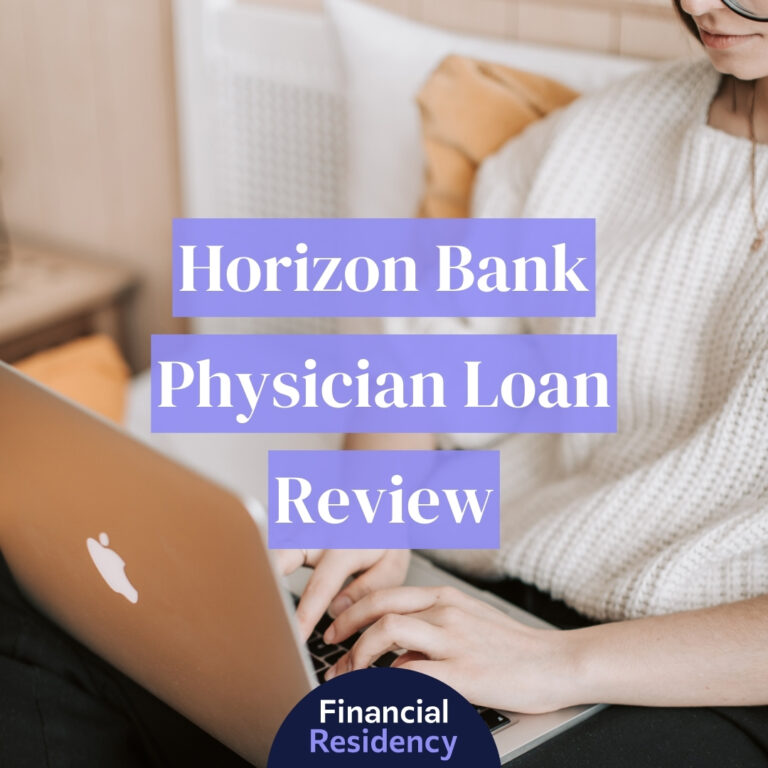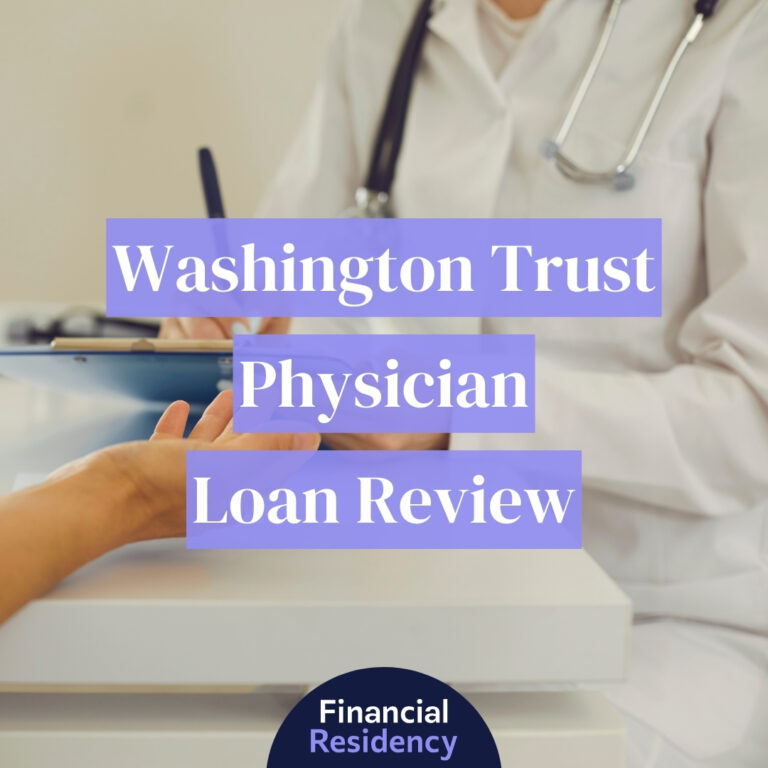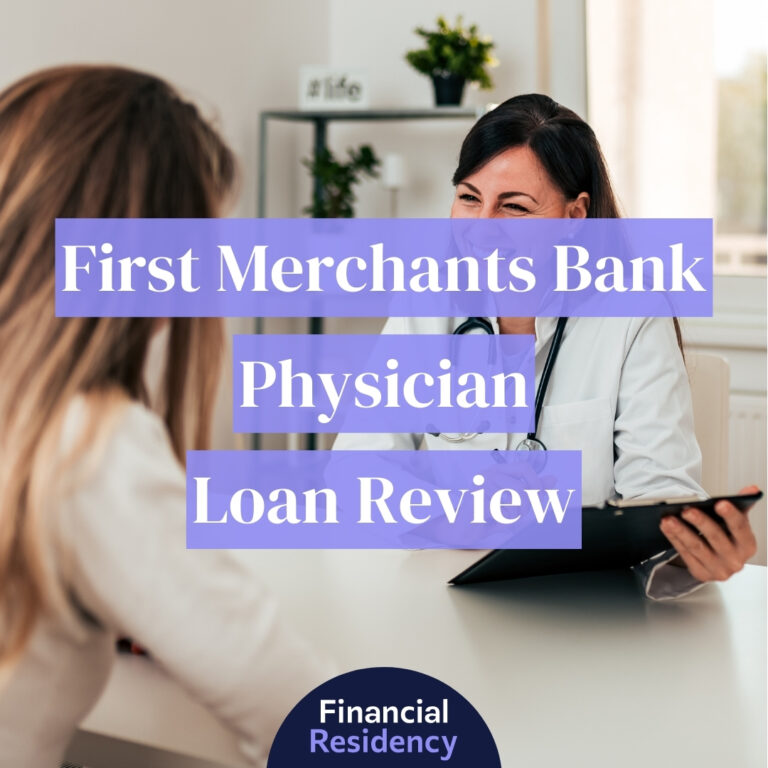Moving or refinancing can be a stressful process, but utilizing a physician mortgage loan in Vermont can help you through the transition.
If you want to join over 2,475 practicing physicians who call The Green Mountain State their home, your dream of home ownership in Vermont could soon be a reality with a physician home loan.
Vermont offers its 647,000 residents many different lifestyles centered around the state’s natural beauty.
Whether you prefer being near the ski slopes, the state parks, or the beautiful lakes, you’re bound to find a place to call home.
Vermont may be one of the smallest states in the Union, but it offers a wide selection of places to plant your roots.
If you’re ready to find the best physician loan in Vermont, then we recommend working with one of the trustworthy lenders we’ve vetted below.
7 Best Vermont Physician Home Loan Lenders
Here are the top physician mortgage loan lenders in VT:
Discover The Best Lenders in Vermont Answer just a few questions about your career, where you're buying, and how much you want to borrow. Our service will then show you the exact programs you're eligible for from vetted physician loan specialists who will guide you through every step of the process – obligation-free!
1. BMO Bank
- BBB Grade: A+
- JD Power Score: 805
BMO Bank, formerly BMO Harris Bank, offers its Physicians’ Mortgage Program to residents, fellows, and licensed physicians and dentists with the following degrees:
- MD
- DO
- DDS
- DMD
The program provides up to 95% financing on loans up to $1.5 million or 90% financing on loans up to $2 million. The program doesn’t impose an age limit, but applicants who have been practicing for more than 10 years are limited to 90% financing. All down payment options waive PMI.
Loans may be used to purchase or rate/term refinance a 1-2 unit property, a single-family home, townhouse, or condominium used as a primary residence. Investment properties and second homes are excluded.
Underwriters will make special considerations for borrowers with high student loan debt on a case-by-case basis. While conventional mortgage loans typically require at least two years of stable work history, BMO Bank will accept a residency agreement or future-dated employment contract––as long as the borrower will begin work within 90 days of closing.
Borrowers with a BMO Bank checking account can access a $500 closing cost discount by enrolling in AutoPay. All standard fixed and adjustable-rate mortgage products are available.
Learn More:
2. Citizens Bank
- BBB Grade: A+
- JD Power Score: 818
Citizens Bank is our third pick for the best physician loans in Vermont. Its physician loan program is open to residents, physicians, and dentists with an MD, DO, DDS, or DMD degree.
The program will accept 5% down payments on loans up to $850,000, 10% on loans up to $1 million, and 15% on loans up to $1.5 million. All down payment options exclude PMI.
Loans may be used to purchase a new home, refinance an existing one, and even build your dream home. Not all physician mortgage loans offer construction financing, so that’s a worthwhile consideration for buyers looking to construct their homes from scratch.
Cash-out refinancing options are available.
Student loans deferred for more than 12 months after closing won’t be used in DTI calculations, but that’s not the only option for borrowers with student debt. For those on income-driven repayment plans, the actual monthly payment amount will be used––rather than the entire loan balance.
Borrowers may choose a 10, 15, or 30-year fixed-rate mortgage or an adjustable-rate mortgage. Citizens Bank offers 3/1, 5/1, 7/1, and 10/1 adjustable-rate mortgage products.
Customers may be eligible for additional discounts. Contact a loan officer for more details.
Learn More:
3. Evolve Bank & Trust
- BBB Grade: B
- JD Power Score: N/A
Evolve Bank & Trust offers its Medical Professional Mortgage Program to healthcare workers within the first 10 years of their careers. Compared to the two aforementioned programs, Evolve Bank & Trust offers a far more inclusive product for a variety of medical professionals.
The following designations are included in the Medical Professional Mortgage Program:
- MD
- DO
- DDS
- DMD
- PA
- NP
- DVM
- CRNA
- DC
- OD
- DPM
- PharmD/RPH
- Clinical Nurse Specialists
Evolve Bank & Trust offers fully underwritten pre-approval at no cost so borrowers can navigate the home-buying process with confidence. Some borrowers may even be eligible for additional closing cost discounts.
The program will provide 100% financing loans up to $1 million. Loans up to $1.25 million require a 5% down payment. Larger loan amounts require larger down payments. As such, loans up to $1.5 million require a 10% down payment and loans up to $2 million require at least 15% of the home’s purchase price upfront.
The lender has minimum cash reserve requirements depending on the loan amount.
Gift funds may be applied to the down payment or closing costs.
Like other physician loan programs, PMI is not required. Loans may be used to purchase a 1-4 unit family home or condominium. Construction loans are an option as well.
Underwriters will work with lower credit scores than competitors, but the threshold isn’t widely advertised. They will also be flexible with DTI ratios. Future-dated employment contracts may be used as proof of earning potential.
Learn More:
4. Huntington Bank
- BBB Grade: A+
- JD Power Score: 821
Huntington Bank extends its Physician Mortgage Loan Program to physicians (MD), dentists (DMD/DDS), and veterinarians (DVM) at any stage in their careers. All borrowers will be required to demonstrate sufficient income and cash reserves to qualify for the loan, but PMI is not required. Cash reserve requirements depend on the total loan amount.
Borrowers can secure 100% financing on loans up to $1 million, 95% financing on loans up to $1.25 million, and 90% financing on loans up to $2 million. The required down payment and the maximum loan amount will be determined based on each borrower’s credit background.
Cash-out refinances are available, but borrowers will be limited to $50,000 cash or $250,000 overall. If borrowers take $50,000 cash, all other funds from the loan must be used to satisfy debt obligations.
The program is limited to the purchase or refinance of a primary residence. Fixed and variable interest rate options are available.
Learn More:
5. KeyBank
- BBB Grade: A+
- JD Power Score: 794
KeyBank offers one of the most generous physician loan programs in Vermont. Actively practicing interns, residents, fellows, clinical professors, and researchers with an MD, DO, DDS, DMD, or DPM degree are eligible as long as they have a current license.
KeyBank’s knowledgeable loan officers provide a personalized experience that is designed to meet medical professionals where they are in life right now. The program will extend up to $3.5 million with a maximum of 95% financing.
Loans may be used to purchase an owner-occupied primary residence or second home, which is rare in the physician mortgage world. Eligible property types include attached or detached single-family homes, condominiums, or a property in a planned unit development.
Rate/term and cash-out refinancing options are available. Fixed and variable interest rate options are also available.
Learn More:
6. TD Bank
- BBB Grade: A+
- JD Power Score: 828
TD Bank’s Medical Professional Mortgage Program is open to licensed practicing physicians, dentists, and oral surgeons. Residents and self-employed physicians qualify as well.
Loans may be used to purchase or refinance a single-family residence, condominium, or property in a planned unit development. In select markets, it may provide financing for properties in co-op buildings.
Borrowers can choose from the following down payment options with fixed or variable interest:
- 0% on loans up to $1 million
- 5% on loans up to $1.5 million
- 01% on loans up to $2 million
Underwriters will be flexible when calculating the DTI ratio––making special considerations for physicians, dentists, residents, and fellows with high DTI from student loan debt.
Like other physician loan programs, doctors may also be able to use an employment contract to qualify for the program.
Learn More:
7. U.S. Bank
- BBB Grade: A-
- JD Power Score: 820
U.S. Bank’s physician mortgage loan is limited to residents, fellows, medical doctors, and doctors of osteopathic medicine with a 710 minimum credit score. The program has a maximum loan amount of $2.5 million, but the required down payment depends on each borrower’s credit approval.
Borrowers can put 5% down on loans up to $1 million, 10% down on loans up to $1.5 million, or 15% on loans up to $2 million. Student loan debt isn’t excluded, but underwriters will use the monthly payment amount for borrowers on an income-driven repayment plan or 2% of the total loan balance for borrowers in deferment.
Borrowers who hold a platinum checking account can qualify for a 0.25% lender credit up to $1,000, which can further offset the costs of purchasing a home.
Learn More:
How Physician Mortgage Loans Work in Vermont
In Vermont, the conventional conforming loan limit is $726,200 and the FHA loan limit is between $472,000 and $492,000. All loans that exceed this loan limit are considered jumbo loans. While the phrase can be alarming, it doesn’t have to be for high-income earning professionals, especially doctors.
Doctors and other medical professionals have substantial earning potential––often well over six figures from their salary alone. Physicians with investments, sideline businesses, and private practices can gross even more throughout their lifetimes.
Flexibility with Physician Loans
Mortgage lenders and financial institutions understand that the trajectory of a medical professional accelerates with time and attracting high-income earners to the bank early on in their careers can be the start of a mutually beneficial relationship.
High-income earners are less likely to default on their loans, but they’re also more likely to make referrals to friends and colleagues, take out additional loans, and bring more business to the institution by making large deposits and opening savings accounts.
Physician mortgage lenders attract these professionals in a few different ways. We’ve outlined some of the more lenient qualifying terms below:
- May work with DTI ratios as high as 50%
- May exclude student loan debt entirely or use a portion of the total balance
- Does not require private mortgage insurance
- Will accept future-dated employment contracts and residency agreements that start within 90 days of closing
- May accept 0–15% of the home’s purchase price as a down payment
More Rigid Requirements
While physician mortgages are more lenient in many respects compared to a conventional loan, there are a few more rigid requirements worth considering. For example, physician mortgages often require a higher credit score than other mortgage programs.
FHA lenders may work with scores as low as 590, while physician loan underwriters prefer scores closer to 700. Some borrowers may need an even higher credit score to qualify for 100% financing options.
Physician loans typically have a primary residence requirement as well. This requirement stipulates that the financed property must be the main residence of its owner. In other words, physician loans are rarely the best financing option for borrowers seeking to purchase an investment property or second home.
Pros and Cons
Financial decisions, especially purchasing or refinancing a home, require thoughtful and careful consideration. Weighing the pros and cons of doctor mortgage loans as a whole can prepare you to choose the best physician loan in Vermont for your complex financial situation.
We’ve prepared the following advantages and drawbacks to guide you through the home financing process.
Pros
- Higher loan limits: Physician mortgage loans in Vermont give medical professionals access to larger loan amounts than conventional mortgages.
- No private mortgage insurance: Doctor mortgage loans don’t require PMI, a fee charged by conventional lenders when borrowers hold less than 20% equity in their property.
- Flexible debt-to-income ratio: Physician loan programs will make special considerations for medical professionals. For example, underwriting may exclude student loan debt altogether or approve borrowers with a higher DTI ratio than conventional loans.
- Buy with an employment contract: Borrowers who have not yet begun their new jobs can use an employment contract dated within 90 days of closing for income verification.
- Low or no down payment: Physician mortgage loans provide 85–100% financing, which reduces many of the upfront costs of purchasing a home.
- Can be used to refinance: Doctor loan programs can be used to rate/term or cash-out refinance a qualifying property a medical professional already owns.
Cons
- Large mortgage payment: Because physician loans have higher loan limits, monthly payments can be significant, so it’s important to budget carefully.
- High credit score: Physician mortgage lenders typically require a minimum credit score of around 700, which is more restrictive than conventional mortgages and government-backed loan programs.
- Primary residence requirements: While there are a few exceptions, physician loans are typically reserved for the purchase or refinancing of an owner-occupied primary residence.
- Closing costs and cash reserves: Even with 100% financing, physician loan programs require sufficient collateral and closing fees, so the home-buying process isn’t without cost.
- Age limits: Physician mortgage loans are intended to eliminate the financial barriers early-career medical professionals likely face. As such, some loan programs stipulate that applicants must be within 10 years of completing residency to qualify.
- Adjustable-rate mortgage: Some physician loan programs are structured as adjustable-rate mortgages, which means the loan term begins with an introductory fixed interest rate that later resets to the market rate. The changing interest rate can make mortgage payments unpredictable.
Frequently Asked Questions
What should your credit score be to get the maximum amount of a physician loan?
Your credit score should be in the excellent range to get the maximum amount of a physician loan. Every lender has its own qualifying terms for 100% financing, so it can be a good idea to shop around for the best rate options. In general, the better your credit score, the more favorable your loan terms will be.
Are physician loans a good idea?
Physician loans can be a good idea for early-career medical professionals who can’t meet the qualifying terms for a conventional loan. It can also be a good option for existing homeowners reviewing all their refinancing options.
We recommend all borrowers pause to do their due diligence by researching the pros and cons of physician loan programs, getting preapproved with multiple lenders, and discussing all their loan options with a mortgage broker they trust.
Do physician loans have PMI?
No, physician loans don’t have PMI. Waiving private mortgage insurance is one of the biggest benefits of physician home loans. PMI is an additional yearly fee designed to protect the lender when borrowers hold less than 20% of home equity. The fee is a set percentage of the total loan amount disbursed over your monthly payments.
Waiving PMI can save borrowers thousands of dollars throughout the loan term, especially when you have a sizable mortgage balance.
What is the difference between a physician loan and a medical student loan?
The difference between a physician loan and a medical school loan is a physician loan is a home loan while a medical school loan is a student loan. A home loan is a mortgage that results in home equity whereas student loans pay for the tuition that results in a degree.
Who is a Physician Loan in Vermont Best For?
Information can be overwhelming and it can lead to analysis paralysis––preventing you from making a decision. We’ve prepared a few example scenarios that can be a strong fit for a physician loan in Vermont to help you decide if it’s the right choice for your financial situation.
If any of the below scenarios resonate with you, a physician loan in Vermont may be a good mortgage loan option for you.
1. Recent medical school graduates with a limited down payment
Medical school is expensive and few graduates are able to pay for their entire education without taking out student loans. Medical school and its rigorous coursework require substantial time and financial investment so it can be difficult to save for a down payment.
Physician loans remove this barrier by working with higher loan-to-values than conventional loan programs. Many physician loan programs will accept down payments as low as 0–5% of the home’s purchase price, but it’s typical to see 10–15% down payment options as well.
2. First-time homebuyers shopping their rate options
First-time homebuyers with a medical background or special training may be eligible for professional loan programs with competitive interest rate options. Shopping around can help first-time homebuyers identify their best interest rates while making a financially prudent decision.
Physician loans sometimes have higher interest rates than conventional mortgage programs due to the additional risk the lender incurs by providing lenient qualifying terms. However, it isn’t a hard and fast rule.
Comparing your mortgage loan options can help you uncover interest rates comparable to conventional loans.
3. High-income earning medical professionals who can afford a large monthly payment
High-income earners can qualify for loan programs that aren’t available to the general public and in some cases, physician mortgage loans are one of those options. If you are a high-income earner with a specialty degree, we recommend reaching out to a loan officer for more information.
Physician loan programs aren’t beholden to the same loan limits as conventional loans, which can allow you to purchase your dream home sooner than if you had to save for a down payment on a large loan amount.
If a large monthly payment isn’t a deterrent to you, a physician mortgage loan may be the right option for your needs.
4. Qualifying borrowers looking to refinance
Refinancing allows borrowers to leverage their home equity. Rate/term refinances allow borrowers to lower their monthly payments by restarting the loan with a new principal balance and interest rate.
Cash-out refinances allow borrowers to pay off debt, make home improvements, and take as much as $50,000 for whatever other financial needs they may have.
If you hold a qualifying medical degree, it’s worth investigating your refinancing options with a physician mortgage loan in Vermont.
5. Medical residents with significant student loan debt
An acceptable debt-to-income ratio is one of the main qualifications for a mortgage. Student loans can skew the DTI ratio for early-career medical professionals who haven’t reached their full income potential yet.
Physician mortgages aim to reduce this barrier by excluding student loan debt or working with higher DTI ratios than conventional loans. Many conventional lenders won’t approve borrowers with a DTI ratio higher than 43%, but some physician mortgage loans will approve ratios as high as 50%.
Moving to a Different State?
Click on the state you are moving to and get the best physician mortgage loan lenders in that state:
Learn more about physician home loans.




